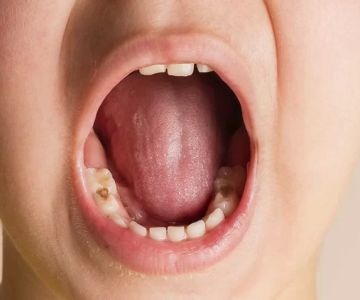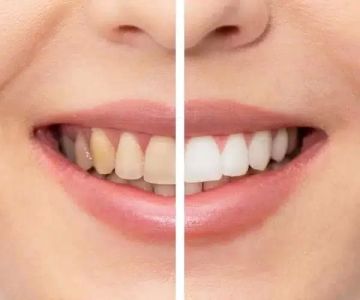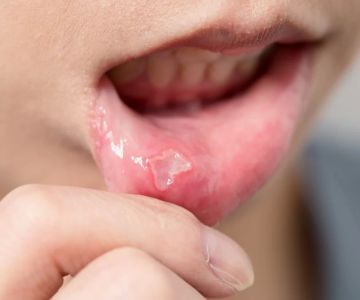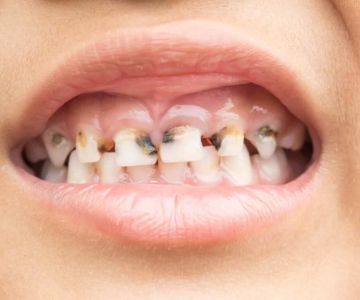Understanding Toothaches During Pregnancy
Pregnancy is a beautiful and exciting time, but it also comes with its own set of challenges. One of those challenges is dealing with a toothache, particularly if you have a cavity. While toothaches during pregnancy are relatively common, they can be more concerning due to the limitations on what treatments are safe during this period. In this article, we'll explore the causes of toothaches during pregnancy, the risks of untreated cavities, and how you can safely treat a toothache caused by a cavity while ensuring the health of both you and your baby.
Why Pregnancy Increases the Risk of Toothaches
Pregnancy brings about many changes to the body, and some of these changes can affect your oral health. Hormonal shifts, particularly increased levels of progesterone and estrogen, can lead to several dental problems. These hormones can make the gums more sensitive and prone to inflammation, which could result in pregnancy gingivitis, a common condition that causes swollen, bleeding gums.
Additionally, many pregnant women experience cravings for sugary or acidic foods, which can contribute to plaque buildup and cavity formation. If a cavity goes untreated, it can lead to a painful toothache, especially when exposed to hot, cold, or sweet foods. Therefore, it is crucial to address any dental issues as soon as they arise to avoid complications.
Safe Ways to Treat a Toothache Caused by a Cavity During Pregnancy
When you have a toothache from a cavity during pregnancy, it’s essential to take extra care with the treatments you choose. Some over-the-counter pain relievers and dental procedures are not safe for pregnant women, so it's important to find remedies that will relieve your discomfort while safeguarding your health and that of your baby. Here are several safe options to help treat a toothache:
1. Use Warm Salt Water Rinse
A warm salt water rinse is one of the safest and most effective home remedies for a toothache during pregnancy. Salt has natural antibacterial properties that can help reduce inflammation and cleanse the affected area. Simply mix half a teaspoon of salt in warm water and rinse your mouth gently. This can help soothe the pain and reduce swelling in the gums.
2. Apply a Cold Compress
Cold compresses can be effective in numbing the pain caused by a toothache. Applying a cold compress to the outside of your cheek near the affected tooth can help reduce swelling and alleviate discomfort. Make sure to use a cloth between the ice pack and your skin to prevent skin damage. Apply the compress for 15-20 minutes every few hours for maximum relief.
3. Clove Oil for Pain Relief
Clove oil has been used for centuries as a natural remedy for tooth pain. It contains eugenol, a compound with analgesic and anti-inflammatory properties. Applying a small amount of clove oil directly to the affected area can help numb the pain and provide temporary relief. However, be sure to use it sparingly and consult your doctor if you are unsure about using this remedy during pregnancy.
4. Avoid Irritants
If you're experiencing a toothache due to a cavity, it’s important to avoid certain foods and drinks that can aggravate the pain. Hot, cold, or sweet foods and beverages can trigger sensitivity in the affected tooth. Stick to softer foods at a moderate temperature and avoid sugary snacks that could further decay the tooth.
5. Stay on Top of Oral Hygiene
Good oral hygiene is essential during pregnancy, especially when dealing with a cavity. Brushing your teeth at least twice a day with fluoride toothpaste and flossing daily can help prevent further complications. Make sure to gently brush around the affected area to avoid irritation, but don’t skip this step as keeping the area clean is crucial in preventing infection.
6. Consult Your Dentist
While home remedies can provide temporary relief, it is essential to consult your dentist as soon as possible. A dentist can assess the severity of the cavity and recommend the best course of treatment. If the cavity is deep, a filling or other dental procedure may be necessary, but your dentist will ensure that the treatment is safe for both you and your baby. Many dentists offer special care for pregnant women, using local anesthetics that are safe for pregnancy.
The Importance of Regular Dental Checkups During Pregnancy
Pregnancy can increase the risk of developing dental issues, including cavities, gum disease, and tooth sensitivity. Regular dental checkups are essential to ensure that any problems are caught early and treated promptly. Many dentists recommend seeing a dentist during the first trimester to address any oral health concerns and avoid potential complications. In addition to preventing issues like cavities, regular visits can help manage pregnancy-related conditions such as gingivitis and ensure that your oral health is maintained throughout your pregnancy.
What to Do if the Pain Persists
While most home remedies can offer temporary relief from a toothache, if the pain persists or worsens, you should seek professional help from your dentist. Toothaches caused by cavities can lead to infection if left untreated, which could be harmful to both you and your baby. A dentist will be able to provide a more permanent solution to your dental issue and advise you on the safest treatment options during pregnancy.
Conclusion: Taking Care of Your Dental Health During Pregnancy
Dealing with a toothache from a cavity during pregnancy can be challenging, but it is important to approach treatment carefully and safely. Using home remedies such as warm salt water rinses, cold compresses, and clove oil can help manage the pain while avoiding harmful medications. However, it's crucial to consult with your dentist as soon as possible to address the underlying issue and prevent complications. Remember, taking good care of your teeth during pregnancy is essential for both your health and the health of your baby.







 Westgate Dental Arts
Westgate Dental Arts Coventry Family Dental
Coventry Family Dental Familia Dental
Familia Dental Dr. Daniel S. Fife, DDS
Dr. Daniel S. Fife, DDS Dentistry At Suburban Square: Michael I. Wollock, DMD
Dentistry At Suburban Square: Michael I. Wollock, DMD Comfort Care Dental
Comfort Care Dental The Importance of Oral Health Education During Pregnancy for a Healthy Pregnancy
The Importance of Oral Health Education During Pregnancy for a Healthy Pregnancy Why Skipping Dental Checkups Can Lead to Bigger Oral Health Problems
Why Skipping Dental Checkups Can Lead to Bigger Oral Health Problems Advantages of Porcelain Dental Restorations
Advantages of Porcelain Dental Restorations Best Tips for Brushing Your Teeth Properly for Healthy Gums: Essential Techniques for Oral Health
Best Tips for Brushing Your Teeth Properly for Healthy Gums: Essential Techniques for Oral Health How Can Diabetes Cause Tooth and Gum Problems? Preventing and Managing Oral Health Issues
How Can Diabetes Cause Tooth and Gum Problems? Preventing and Managing Oral Health Issues Healthy Habits for Promoting Good Oral Health and Hygiene: Tips for a Healthy Smile
Healthy Habits for Promoting Good Oral Health and Hygiene: Tips for a Healthy Smile